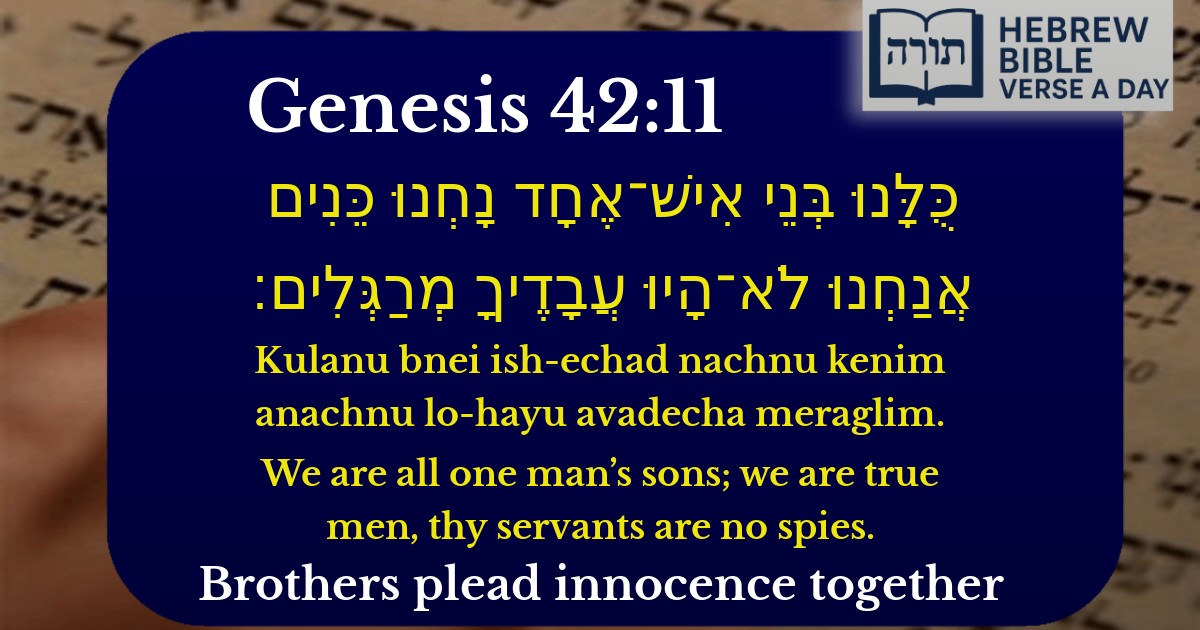Join Our Newsletter To Be Informed When New Videos Are Posted
Join the thousands of fellow Studends who rely on our videos to learn how to read the bible in Hebrew for free!
Hebrew Text
כֻּלָּנוּ בְּנֵי אִישׁ־אֶחָד נָחְנוּ כֵּנִים אֲנַחְנוּ לֹא־הָיוּ עֲבָדֶיךָ מְרַגְּלִים׃
English Translation
We are all one man’s sons; we are true men, thy servants are no spies.
Transliteration
Kulanu bnei ish-echad nachnu kenim anachnu lo-hayu avadecha meraglim.
Hebrew Leining Text
כֻּלָּ֕נוּ בְּנֵ֥י אִישׁ־אֶחָ֖ד נָ֑חְנוּ כֵּנִ֣ים אֲנַ֔חְנוּ לֹא־הָי֥וּ עֲבָדֶ֖יךָ מְרַגְּלִֽים׃
כֻּלָּ֕נוּ בְּנֵ֥י אִישׁ־אֶחָ֖ד נָ֑חְנוּ כֵּנִ֣ים אֲנַ֔חְנוּ לֹא־הָי֥וּ עֲבָדֶ֖יךָ מְרַגְּלִֽים׃
🎵 Listen to leining
Parasha Commentary
📚 Talmud Citations
This verse is quoted in the Talmud.
📖 Sotah 10b
The verse is referenced in the context of discussing the story of Joseph and his brothers, emphasizing their claim of innocence and unity as sons of one man.


Context of the Verse
This verse (Genesis 42:11) is part of the narrative where Yosef's brothers stand before him in Egypt, unaware of his true identity. They are accused of being spies, and in their defense, they declare their familial unity and honesty.
Literal Interpretation (Peshat)
Rashi explains that the brothers emphasize their shared lineage ("we are all one man’s sons") to prove they could not be spies, as spies would not all be from the same family. The term "כֵּנִים" ("true men") indicates their claim of integrity—that they came only to buy food, not for espionage.
Midrashic Insights (Derash)
Halachic and Ethical Implications
Rambam (Hilchot De'ot 2:6) teaches the importance of honesty in business dealings. The brothers' insistence on their integrity aligns with Torah values of truthful speech, even under suspicion.
Symbolic Meaning (Sod)
The Zohar interprets their words as hinting at the unity of the Jewish people—descendants of "one man" (Yaakov), bound together in destiny. Their declaration foreshadows the future unity necessary for redemption.